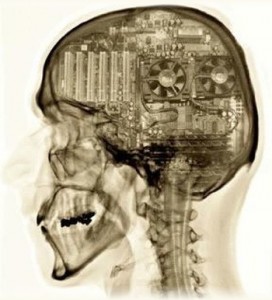This is a sponsored post. To find out more about sponsored content on Technology Bloggers, please visit our Privacy Policy.
There is now an extensive range of different printers on the sites of suppliers like Ryman, and this range of choice can sometimes make the selection of the best model seem a difficult task.
As with so many other tech purchases, the way to zero in on the right printers is to first start by establishing the detail of your regular needs.
With printers, this understandably amounts to the type and frequency of the intended usage. Both of these factors have a bearing on spec of suitable printers, which in turn influences both initial outlay and ongoing running costs. Here we look at relative benefits of the most common types of printers.
Laser printers were formerly an expensive option, for business rather than home use, but costs for this technology, as with so many things in the IT world, have dropped over the years.
Those looking to produce a large volume documents will be happy with the excellent print quality of text produced by laser printers. Ongoing running costs are also low, with the relatively expensive toner cartridges lasting a long time, and commonly averaging a running cost of about 1p per A4 sheet. In contrast, inkjet printers can cost as much as 5p per sheet.
However, laser printers designed for the home use market do not usually come with the auto-duplexing function, which allows the automatic printing of both sides of the paper, and so aspiring novelists on a budget should perhaps be aware of this fact. Colour laser printers are a bit more expensive and limited in the quality of colour image that can be produced – they are not really recommended for those looking for a home photograph printer.
 Inkjet printers are still the most popular for home use. Many inkjet printers can produce excellent quality photo prints and other high definition images, in full colour. Standard or entry level inkjets will perform just this function, and can be picked up inexpensively, although as mentioned can become costly if a large volume of printing is required.
Inkjet printers are still the most popular for home use. Many inkjet printers can produce excellent quality photo prints and other high definition images, in full colour. Standard or entry level inkjets will perform just this function, and can be picked up inexpensively, although as mentioned can become costly if a large volume of printing is required.
For home office use, many choose to spend a little more on an integrated unit. All-in-one inkjet printers can scan, copy and print, and often fax. These kinds of inkjet printers will understandably cost more initially, but will have similar running costs as more basic models. One point to note with the integrated, all-in-one inkjet is the size of the unit, which is usually considerably larger than the standard type, and can eat up limited desk space.
While cheaper than laser printer toner cartridges, fresh ink cartridges or refills for inkjets will be required more frequently. This can get expensive, especially if a lot of high definition colour images are printed. Producing draft quality prints when definition is not an issue can go some way to reducing ongoing usage costs, and this is particularly viable when printing text.

